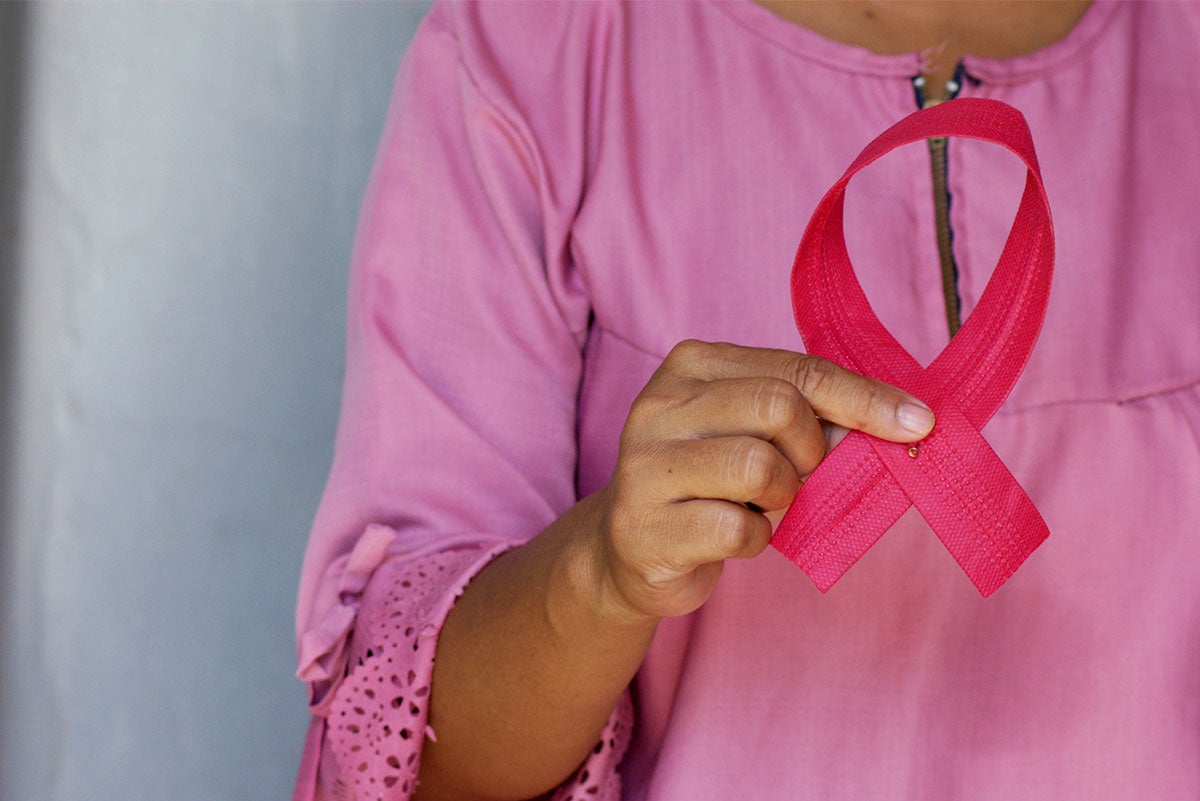7 Questions to Help You Understand a Breast Cancer Genetic Test
October 3, 2022
By: Laura Childs, RN
Categories: Breast Health
A breast cancer genetic test can be done at St. Mary’s Breast Health Center.
There are many women, as well as some men, who can benefit from evaluation in a high-risk breast clinic. These risks may be personal history, family history, or an already diagnosed breast abnormality.
The genetic risk assessment form is part of our Breast Health Center’s routine patient paperwork for all patients. The form, known as the “Cancer Family History/High Risk Assessment Form,” basically asks if you or your close relatives have ever been diagnosed with cancer. It also asks for their age of diagnosis and the type of cancer.
A breast cancer genetic test can be done at St. Mary’s Breast Health Center. The idea behind a breast center is to have multiple disciplines working together in an integrated way. By approaching breast diseases in a multidisciplinary way, a breast center can provide the best possible care for its patients.
Question 1: What are the first steps?
We provide you with a short video that explains the process of testing as well as potential costs for patients. If you choose to proceed, then our staff will assist with contacting a certified genetic counselor. We will give you a comfortable and private space to have this conversation. The talk with the genetic counselor involves questions similar to what is asked on the Cancer Family History Form as well as personal contact information. After the conversation, if you wish to proceed with testing, a staff member will collect a specimen (salvia or blood) before you leave.
Question 2: How much does Breast Cancer Genetic Test cost?
The cost of the test is not disclosed to us at the Breast Health Center as we receive no money from the test. If there is going to be cost to the patient that is not covered by insurance, the patient is contacted by the genetic testing company prior to analysis of the specimen. St. Mary’s also offers financial assistance for qualified patients who do not have insurance. If you need this service, we will work with you to start the application process.
Question 3: What type of specimen do I give?
St. Mary’s Breast Health Center is able to collect both kinds of samples here in the office.
- Saliva. You are asked to spit into a vial. You must not have gum, mints or water for 30 minutes prior to providing the specimen.
- Blood. Sometimes insurance providers require the blood test. If this is the case for you, our nurse will draw the blood at your visit in the Breast Health Center.
Question 4: How many genes are analyzed?
The company we use tests for a compressive panel of genes known to have links to cancer. Their testing panel includes genes for breast, colorectal, prostate, pancreatic and melanoma cancer.
Question 5: How long does it take to get results?
Usually 2-3 weeks. If a patient has recently been diagnosed with cancer, then the test is ordered STAT, which means results will be available in 7-10 business days.
Question 6: How will I get my results?
Your results are sent securely to St. Mary’s Breast Health Center. A follow-up appointment will be scheduled so you and our dedicated breast health surgeon, Dr. Kathleen Jeffery, can privately review the results and she can answer any questions you might have. In addition, we provide a copy of the results to you at this time.
Question 7: What if my results are abnormal?
Dr. Jeffery will thoroughly go over the results with you and provide a contact with the certified genetic counselor so the results can be discussed with them.
Ultimately, the most important step in breast health is regular screening mammography to detect cancer in its earliest stages. Numerous studies and decades of tracking patients over time clearly show that early detection leads to enhanced outcomes. We urge all women to talk to their primary care physician about mammography, especially if you have a family history of breast cancer or are age 40 or older.



